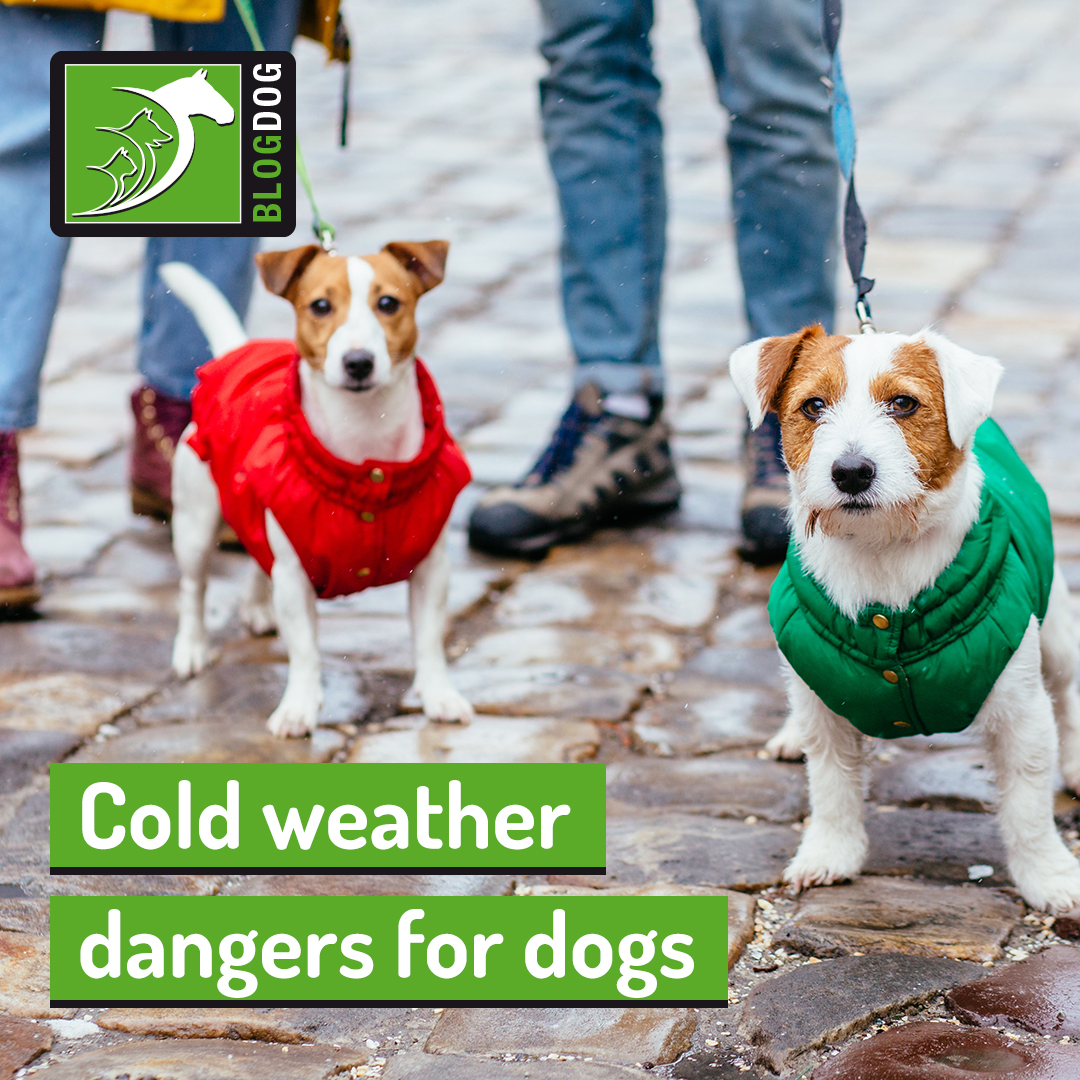
Cold weather dangers for dogs

What do low temperatures mean for our dogs? As winter approaches and the need for warmer clothes, antifreeze and road grit comes about, so the amount of care you need to take with your furry friends increases.
Keep reading to learn how to navigate the coming season and keep your dogs healthy and safe.
Antifreeze ingestion can be fatal if not treated
Antifreeze and di-icing compounds contain ethylene glycol. Its primary purpose is to reduce the freezing point of water, meaning it keeps water liquid even though the temperature drops below 0ºC.
Ethylene glycol helps us keep car engines running when winter really starts, which means it could be inside our homes and within reach of pets soon. As this substance tastes sweet, pets might feel tempted to drink from spills and won't think twice about licking it off their fur if they get any on their feet or legs.
However, antifreeze is highly toxic, and even a tiny amount can cause fatal kidney damage. Here are some of the most common early signs of ingestion in dogs:
- Lethargy;
- Incoordination;
- Drinking a lot of water;
- Seizures and coma.
Even though these show up shortly after your dog has ingested antifreeze and might improve without medical help within some hours, ethylene glycol will continue to cause damage to the kidneys! To avoid fatal kidney failure, bring your pets to the vet immediately after you spot the first signs.
Always keep a close eye on your containers of antifreeze and your car for any leaks or spills on your garage, driveway or in cupboards. If you see any, clean them up as soon as possible and if you suspect that your pets have ingested any, call your vet without delay!
Rock salt might cause skin irritation and kidney damage
As the risk of ice on the road increases, local authorities will start to de-ice roads with a mixture of grit and salt that stops ice from forming and helps people travel safely.
If you go out with your dog, he or she will likely get rock salt on the legs and abdomen. This concentration of salt and grit can cause irritation on sensitive skin, especially between the toes, prompting him or her to lick it off.
Ingesting this much salt can lead to problems such as vomiting, lethargy or excessive thirst and might even cause damage to the kidneys if it's severe enough. To avoid this, don't forget to wipe your pet's legs and tummy with a towel after being outside during the road gritting season.
Frostbite happens more easily than you'd expect
While frostbite is fortunately not an everyday occurrence, it is easier than it may seem for your dogs to experience conditions that may cause cold damage to sensitive tissues if you're not careful!
Exposure to cold temperatures for long periods, be it ice, snow, or just a wet, windy day, can cause feet, ears or the tail to lose too much heat and freeze. This causes damage to the skin and underlying tissues, which will not feel pleasant for your dog.
To prevent this, always ensure that your pets are not stuck outside on freezing days, keep their walks short in ice or snow and consider dog boots that are insulated for when you want to play in the snow for longer.
Would you like to know more about dogs? Check our Canine Courses:
Canine courses
Published: 24 Oct 2022
Read the previous article: Help your cat through shedding season!

